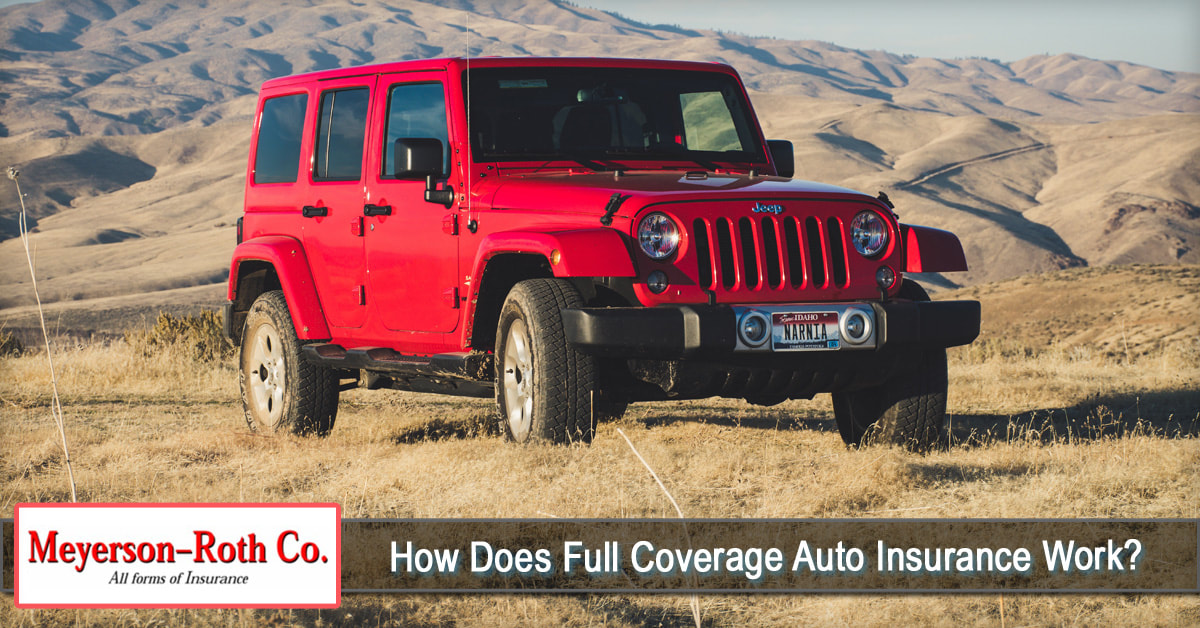When talking about auto insurance, you probably heard about full coverage. but, there really is no such thing in the true sense of the words. You may be familiar with full coverage and liability as categories of auto insurance policies. Let’s just say that full coverage means a policy that includes collision and comprehensive.
Demystifying Full Coverage
Full coverage is a broad term but does not indicate a specific set of coverage. It does not mean the same thing to different people. For example, if you want to have full coverage auto insurance, your agent will likely ask you to specify the coverage you want.
What Does It Cover?
Basically, full coverage comprises of collision and comprehensive. These two coverage provide protection if your car is damaged. If you pay a higher deductible, this reduces the likelihood that you file a claim. Also, insurance companies give a lower rate if your deductible is higher. The opposite happens with a lower deductible.
While collision and comprehensive are separate coverage, they are typically purchased together. In general, when a person wants a full coverage auto insurance policy, it means:
There is also optional coverage, which indicates that the term full coverage does not really include everything.
Full insurance auto insurance normally does not pay for:
With collision and comprehensive, they usually do not cover:
If you want to know more about full coverage auto insurance, ask your agent about the coverage you should buy according to your needs.
At Meyerson-Roth Co Inc., we put our clients first by offering them policies that they can afford. Having insurance is a necessity nowadays and we're here to help you out. Learn more about our products and services by calling our agency at (516) 432-5800. You can also request for a free quote by CLICKING HERE.
Full coverage is a broad term but does not indicate a specific set of coverage. It does not mean the same thing to different people. For example, if you want to have full coverage auto insurance, your agent will likely ask you to specify the coverage you want.
What Does It Cover?
Basically, full coverage comprises of collision and comprehensive. These two coverage provide protection if your car is damaged. If you pay a higher deductible, this reduces the likelihood that you file a claim. Also, insurance companies give a lower rate if your deductible is higher. The opposite happens with a lower deductible.
While collision and comprehensive are separate coverage, they are typically purchased together. In general, when a person wants a full coverage auto insurance policy, it means:
- Collision coverage
- Comprehensive coverage
- The required minimum coverage regulated by the state, for example, liability coverage.
There is also optional coverage, which indicates that the term full coverage does not really include everything.
Full insurance auto insurance normally does not pay for:
- Intentional damage
- Use in a car-sharing program
- Confiscation or destruction by the government or civil authorities
- Use of vehicle for delivery or livery purposes, for example, business use
- Off-road use
- Racing or other speed driving contests
- Catastrophes such as nuclear contamination or war
With collision and comprehensive, they usually do not cover:
- Tire damage
- Electronics that are not attached permanently
- Items that are stolen from the vehicle (if you have homeowners or renters policy, those items may be covered)
- Wear and tear
- Mechanical breakdown (typically an optional coverage)
- Freezing
- Custom parts and equipment (You may specify some small amount in the policy. You may also add a rider for those with higher amounts)
- Another optional coverage is a rental car while your own is unavailable
If you want to know more about full coverage auto insurance, ask your agent about the coverage you should buy according to your needs.
At Meyerson-Roth Co Inc., we put our clients first by offering them policies that they can afford. Having insurance is a necessity nowadays and we're here to help you out. Learn more about our products and services by calling our agency at (516) 432-5800. You can also request for a free quote by CLICKING HERE.


 RSS Feed
RSS Feed
